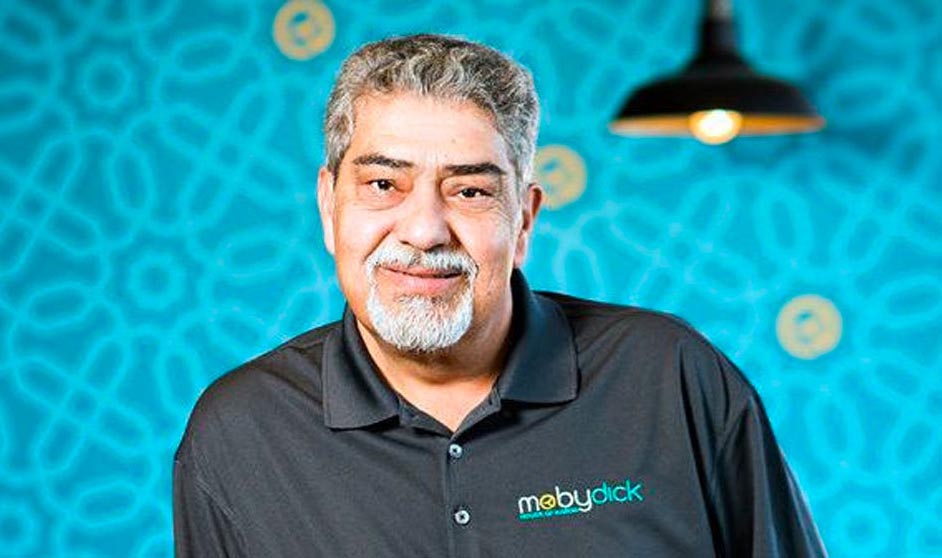From Deli Dreams to Kabob Royalty: The Rise of Moby Dick House of Kabob

By: DaySun Reporter
If there’s one thing food lovers in Washington, D.C., Maryland, and Virginia agree on, it’s this: Moby Dick House of Kabob changed the way a region tastes Persian cuisine. What started as a modest luncheonette has become an icon—24-30 locations strong and beloved by people of all backgrounds. But behind the juicy kabobs and saffron-tinged rice lies a story of grit, vision, and the hunger to share more than just food.
A Dream Born in Iran, Raised in Bethesda
Nezameddin “Mike” Daryoush came to the U.S. from Shiraz, Iran in the 1970s, bringing with him hope, memory, and a work ethic sharpened by both displacement and ambition. His first business, opened in 1987 in Bethesda, was “Moby’s Luncheonette,” serving breakfast and lunch classics: Reubens, sandwiches, that kind of thing.
Things didn’t go spectacularly at first. The competition was stiff. Customers loved the Luncheonette, but something was missing. Then Mike made a pivot that would change everything: he introduced a traditional clay oven and started baking fresh pita, bringing a touch of home to the menu. The smell filled the air. The demand followed
In 1989, embracing Persian flavors more deeply, he rebranded the business as Moby Dick House of Kabob. At its heart, this was not just a restaurant—it was a vision: to build a lifetime career and support Iranian culture, while creating food accessible to everyone
Recipe for Success: Authenticity + Quality + Community
What sets Moby Dick apart isn’t just kabobs—it’s how they do everything:
- The oven, the bread, the taste. Clay ovens are part of every location. The bread (fresh pita) baked daily became a signature. The marinades, the char from open flame grilling—these are not afterthoughts. They’re essential.
- The commissary system. To maintain consistency across multiple locations, Moby Dick built a central kitchen (in Hyattsville). Meats get marinated, sauces made, appetizers prepped centrally, then delivered to each location to finish—this allows scale while preserving the flavor.
- Value without compromise. Portions are generous. Prices approachable. The ambience is casual, but the food competes with sit-down restaurants. Mike always believed people should be able to eat there often—not just on special occasions.
Crossing Cultures Tag: More Than a Persian Restaurant
One of the silent victories of Moby Dick is how it bridged cultural gaps. Mike didn’t aggressively market it as a strictly “Iranian restaurant.” The names of dishes kept their authenticity, but the atmosphere was welcoming—not exotic. It was “Persian” in flavor, but universally appealing in spirit. The result: non-Persian diners came as much out of curiosity as craving. Locals, students, families, hospital staff—all found something familiar in the kabobs, the rice, the warm pita.
Overcoming Challenges: Expansions, Health Scares, and Legacy
No success story is without bumps.
- As Moby Dick grew, it had to move its original Bethesda location next door into a larger state-of-the-art space. It had to make sure scaling up didn’t dilute quality.
- In 2019, there was a scare: several salmonella cases were linked to hummus sold at some locations. Moby Dick voluntarily halted production, recalled the product, and then, after testing, was cleared to resume. Public health crises like these can sink reputations—but Moby Dick’s swift response, transparency, and quality checks allowed it to maintain trust.
- Founder Mike Daryoush passed away in 2019, just after the chain’s 30th anniversary. But by then, the foundations were strong: systems, values, brand loyalty, and a devoted leadership ready to continue his vision. His son Ned now serves as CEO.
What the Future Holds
Growth is still on the table. Moby Dick has started exploring franchising more broadly, seeking selective expansion beyond its base region. Key to this expansion will be preserving what made it special: the flavor, the warmth, the sense that you’re walking into a place where both the dish and the people care.
The Takeaway
Moby Dick House of Kabob’s success isn’t just about kebabs or rice or pita. It’s about vision from a young immigrant who knew two things: the power of culture on a plate, and that quality can never be an afterthought. It’s about building systems that support authenticity. It’s about broader appeal built on respect, not dilution. And it shows that when a place cares—about its ingredients, its people, its guests—it becomes more than a restaurant. It becomes home for many.
https://www.mobyskabob.com/moby-dick-house-of-kabob-grieves-the-loss-of-its-founder-and-president-mike-daryoush/

